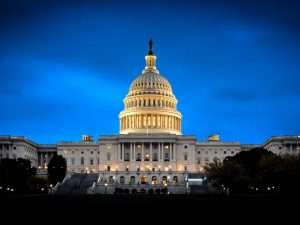The Volokh Conspiracy
Mostly law professors | Sometimes contrarian | Often libertarian | Always independent
"A Better Way to Limit Congress' Subpoena Power"—My SCOTUSblog Symposium Article on Trump v. Mazars
The article critiques the majority decision, and outlines a better way to limit Congress' subpoena power.

My SCOTUSblog symposium article on the Supreme Court's decision in Trump v. Mazars is now up. The article criticizes some aspects of the majority opinion and Justice Thomas' dissent, and outlines a better way to limit Congress' power to subpoena documents.
Here is an excerpt:
Today's Supreme Court decision in Trump v. Mazars establishes a vague and unwieldy four-part test for determining when congressional committees can subpoena documents from the president. The court understandably and rightly rejected both the president's extreme view that such subpoenas are almost never enforceable and the House of Representatives' position that the subpoena power is virtually unlimited. To avoid these extremes, the court created a complex four-part balancing test. But it would have done better to adopt a much clearer and simpler rule: that Congress can only subpoena information related to issues over which it has legislative authority. In that event, the Supreme Court's own decisions limiting the scope of congressional power would also limit the scope of Congress' power to subpoena information….
The four parts are vague in themselves, and the court offers no guidance on what to do if some of the four factors cut one way, while others support the other side. In addition, the test is not actually exhaustive. The court warns that other, unspecified considerations may also have to be weighed….
From the New Deal era to the 1990s, many legal commentators assumed there were no longer any structural limits to congressional legislative power. But beginning in the 90s, the Rehnquist and Roberts Courts decided a series of cases that reinvigorated such limits…..
These decisions create meaningful limits on the scope of congressional legislative authority, and therefore on Congress' subpoena power…
If Congress' power to subpoena information is too broad, the fault lies not in the scope of the subpoena power, but in the scope of the substantive legislative power the former is supposed to facilitate. It is the latter, not the former, that has too few limits. Those who fear there are too few constraints on Congress' subpoena power should focus their efforts on constraining its power to regulate and spend, which remains far beyond what is permitted by the text and original meaning of the Constitution.


Show Comments (13)